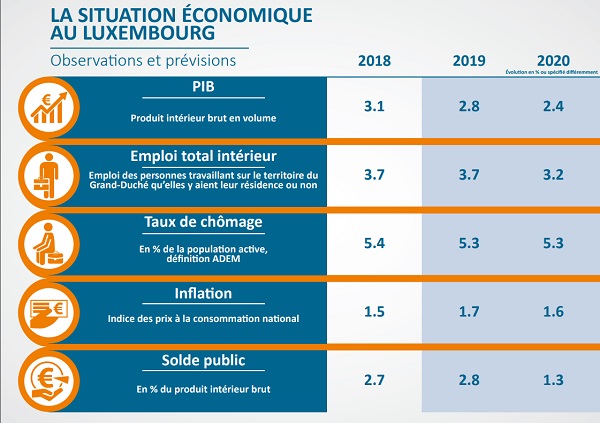 Credit: Statec
Credit: Statec
Statec, the national statistical agency, has published a report on the economic situation of Luxembourg in the context of global economic slowdown.
Whilst Luxembourg has shown a certain level of resistance in 2019, negative economic signs are multiplying and suggest an unfavourable climate for 2020, according to Statec.
The combination of multiple negative factors, starting with intensified trade tensions, have led to a decrease in trade exchanges, industrial production and investment at the international level. This had been accompanied by rising uncertainty which in turn has impacted the confidence of economic actors.
According to the report, the euro zone has also been affected by this slowdown. This was especially the case for Germany, which is reportedly Luxembourg’s leading trading partner. And there is no sign of any significant improvements to this situation as the new year approaches, with weak growth foreseen for the euro zone in 2020.
The year 2019 got off to a fairly good start for the Luxembourg economy, notably resulting from significant GDP growth in the second quarter. Moreover, an update on national accounts has shown greater expansion than previous years. However, negative factors are likely to dent activity progress in the short-term, according to the report, especially as a result of the deteriorating international context. Moreover, employment has already shown signs of slowing down in several branches of the Luxembourg economy, although the unemployment rate is expected to remain at 5.3%.
Regarding inflation, Statec has anticipated a slight decrease (1.6% compared to 1.7% predicted for 2019) in light of the introduction of free public transport in March 2020. Government revenues are similarly expected to remain close to 2.8% of GDP in 2019, before falling to 1.3% in 2020.








